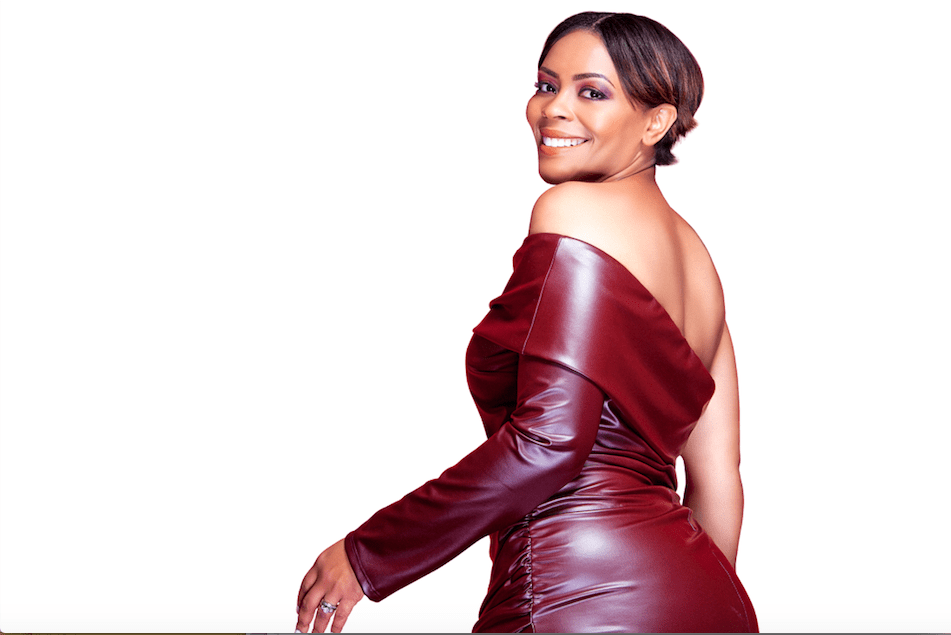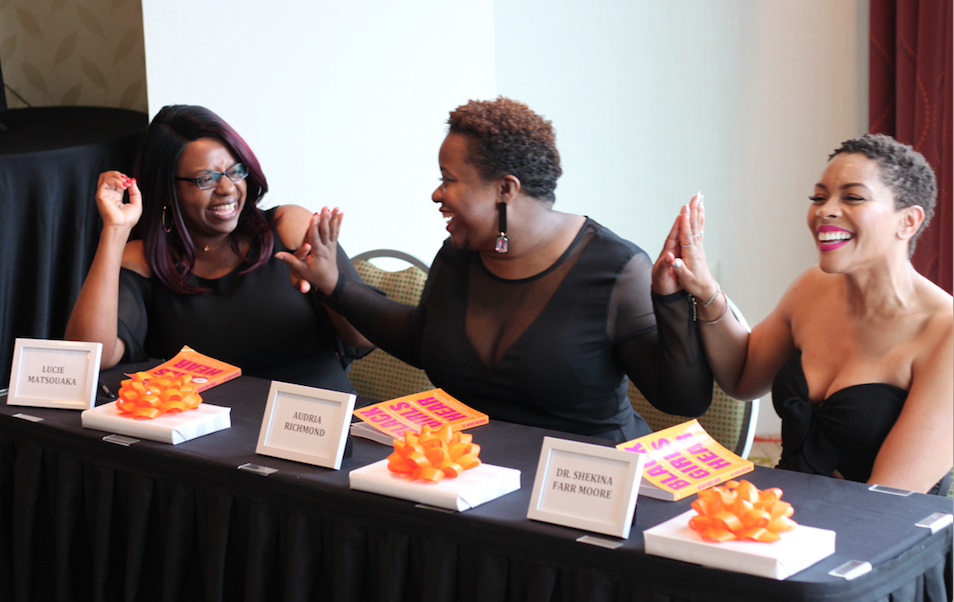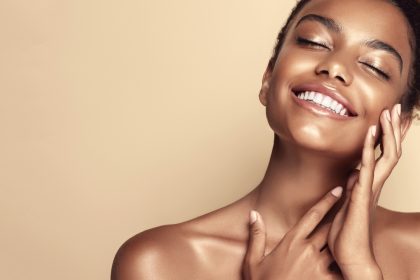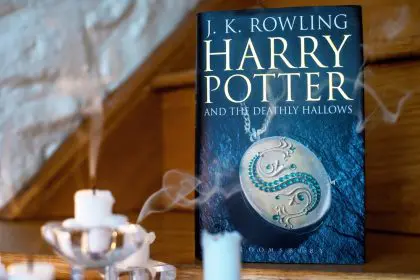
Named among Atlanta’s Power 25, Shekina Farr Moore, Ed.D., is an author, gender advocate, master certified coach and FORBES Coaches Council member. She is also co-CEO of Eroom Marketing Group, an empowerment parent company that oversees Intercontinental Coaching Institute, Fierce Academy, Literacy Moguls Publishing, Black Reins Magazine (the first and only black cowboy magazine in the southeast), ZOOM CON (featured on the White House’s United State of Women in 2016) and her nonprofit, B2F Girls Worldwide — a gender empowerment incubator that offers a comprehensive certification and accreditation program and produces advocacy initiatives, campaigns and events.
Rolling out spoke with Moore about her latest book, Black Girls Hear Anthology.
Is there anything you find particularly challenging about writing or coming up with a concept for your books?
As a publisher, I focus on self-help books that empower women and the community. As an author, I usually lead with topics that I am passionate about. I find that passion compels me to complete any project I endeavor.
With the Black Girls Hear Anthology, I knew I wanted to rally the stories of many women to gain and offer varying perspectives of our experiences — both collective and individual— to the world. This was challenging in that communication became a necessary medium I never had to use in my solo projects. However, I couldn’t be prouder of how we all came together to create this work that is impacting women around the globe.
What was the hardest part of completing this project?
Well, the aim of Black Girls Hear was to bring together a collective of women’s experiences and stories with the hopes of giving young women a glimpse into our worlds that they may find themselves in our stories; or even that they may be able to relate to and be empowered to articulate a phenomenon they are already encountering. But, truth be told, the hardest part for we authors [was] giving ourselves permission to release our stories in the first place. Often, [Black women] hold in our pain in an effort to protect our dignity.

What is the mission you set out to accomplish with this book?
Black Girls Hear was written for every Black woman and girl whose racial and gender identity has made her doubt her abilities; for every Black woman and girl who’s ever experienced being judged or punished more harshly for the identical infractions by a White counterpart; for every Black woman and girl who’s been told she’s too aggressive, too loud, too sassy; for every Black woman and girl who’s had an experience where someone did not expect her to be smart or capable.
It was written to expose our narrative and to illuminate just how gender and race, and their intersection, influence how Black women and girls are treated in society; how Black women are often ignored in policy discussions. It was written to give voice to stories and perspectives that help shed light on gender injustice and societal bias.
What were the literary, psychological or logistical challenges in bringing Black Girls Hear to life?
I’ve written lots of books over the past six years. However, in the case of Black Girls Hear, we had to be really vulnerable. Vulnerable enough to share experiences that hurt us to our core. My co-authors — Jessica Mosley, Audria Richmond, Lucie Matsouaka, Keemia H. Shaw and Lesleigh Muasi — all had to dig deep and ask ourselves what we were willing to give of ourselves to help women thrive and heal. So yes, some of it was psychological.
I talked about my experiences with name-shaming in childhood and adulthood. Lucie talked about her experience as an immigrant new to this country. Another author, Audria Richmond, discusses awkwardness as a Black female in the digital space. So, there are some raw, lived experiences that readers have access to. And once it’s out there, it’s out there.
Everyone’s process for writing is different. Explain yours.
When writing, I usually write in blocks of time. It helps me to get a lot done in chunks of allotted time frames. In fact, my most popular book to date was written in two days.
Generally, I begin with the end in mind. So, I write the conclusion first and then work backward. The intro is the very last thing I complete. I then create 8-10 themes or chapters. From there it’s just a matter of fleshing out the content and thinking through the accouterments such as quotes, passages, statistics, etc.
What books are you currently reading? Why this author?
I am currently reading The Hollywood Commandments by DeVon Franklin, #GIRLBOSS by Sophia Amoruso, and Exponential Living by Sheri Riley. I tend to read authors I can relate to, be it their business trajectory, their speaking or their general vibes. I vibe with each of these authors and respect their perspectives.
Additionally, I read all the research by Kimberlé Crenshaw, an American civil rights advocate and a leading scholar of critical race theory. She is a full-time professor at the UCLA School of Law and Columbia Law School, where she specializes in race and gender issues. Her work inspired me to embark upon the Black Girls Hear project and seek co-authors and contributors to bring it to life.
What new authors have piqued your interest?
My interest is especially piqued by these two authors lately:
New author, Michael A. Strickland who recently released a book called Penetrating Thoughts. It teaches transformative thinking and meditation. Because our thought life dictates our lives, this book is a page-turner.
Also, author Letonia Page and her book A Thousand Wishes. It delves into relationships and the signs of co-dependence, with themes all women can relate to. It’s deep!
What advice would you give other writers?
I run a self-publishing company, Literacy Moguls, and I am often asked this question. My advice to authors with platforms is to write about what you are an expert in. Think about what people ask you [about] the most and then give them what they want. Listening is key. You would be surprised at how much what you know will set you apart.
A great book has what?
A lesson to be learned, a curiosity to be piqued.











